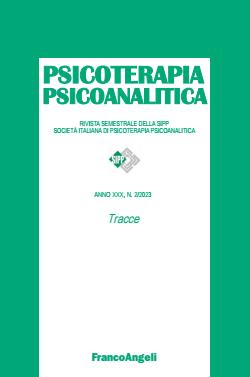Fascicolo 2/2025 Dolore e conoscenza
Editoriale
Lector in fabula
Saggi
- Maria Luisa Algini, Il dolore, “il più autoritario di tutti i processi”
- Elisabetta Fattirolli, Maria Grazia Pini, Tra rifiuto e desiderio di conoscere: dolore, corpo e identità
- Riccardo Galiani, Epistemalgia: storie di reazioni terapeutiche negative
- Raffaele Caprioli, Oltre le colonne d’Ercole: il limite estremo del dolore
- Anna Carla Aufiero, Il teatro dell’allucinatorio: la lente psicoanalitica applicata alla psichiatria
- Luigi Antonio Perrotta, Dietro il velo dell’apparire, il doloroso conoscere: la proposta psicoanalitica. Il caso di Eleonora
Frontiere
Scorci
- Elisabetta D’Amico, L’enactment nella relazione terapeutica psicoanalitica con una paziente adulta
- Andrea Guidantoni, Incidere il dolore
- Davide Pattarozzi, Davide Zanin, Parole ferite, parole vive: il sentimento della nostalgia tra dolore e conoscenza
Intersezioni
- Elena Bonassi, Il dolore della crescita e la disubbidienza necessaria. Una proposta di lettura de Le avventure di Pinocchio. Storia di un burattino
- Matilde Elia, Il dolore di una Diva
